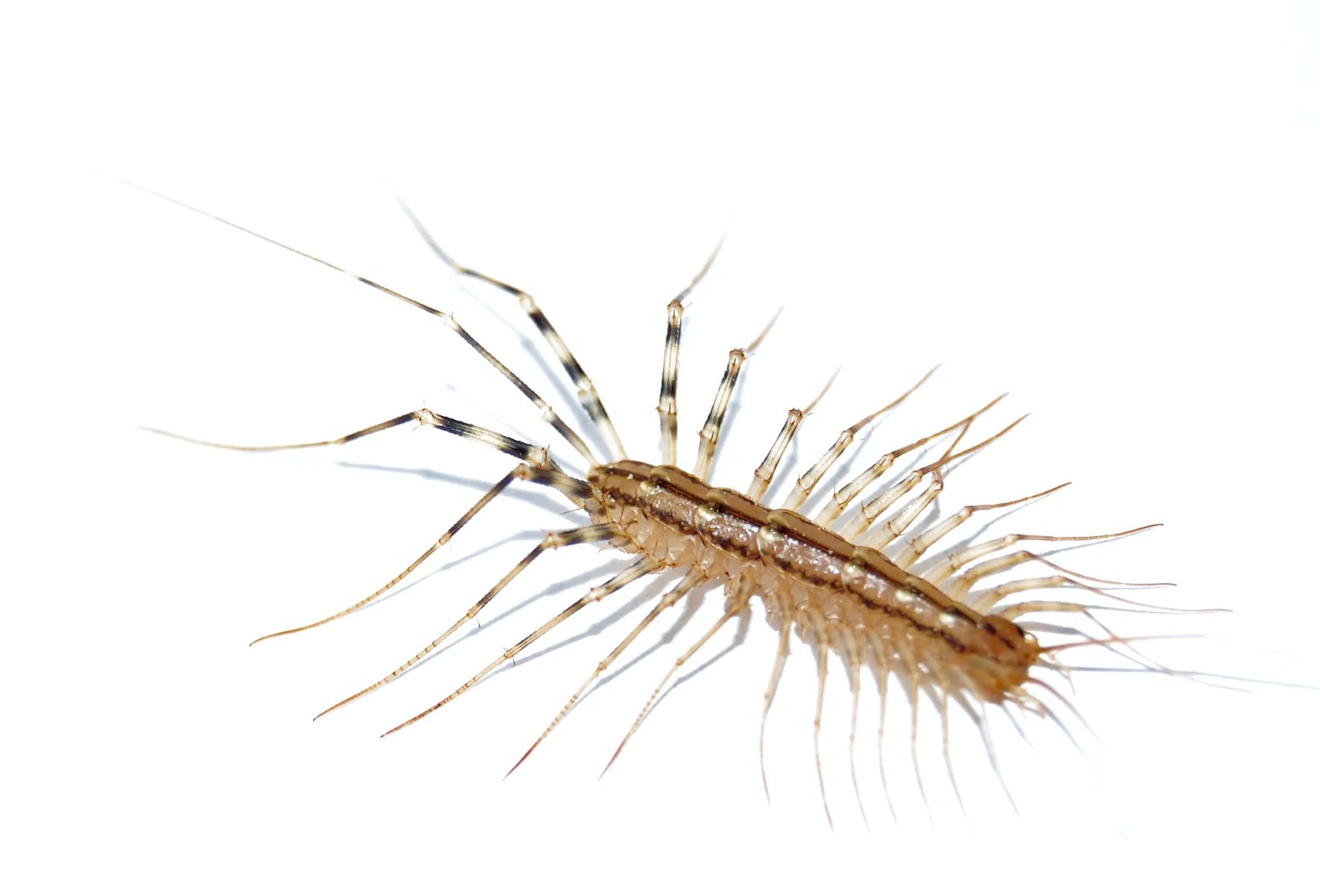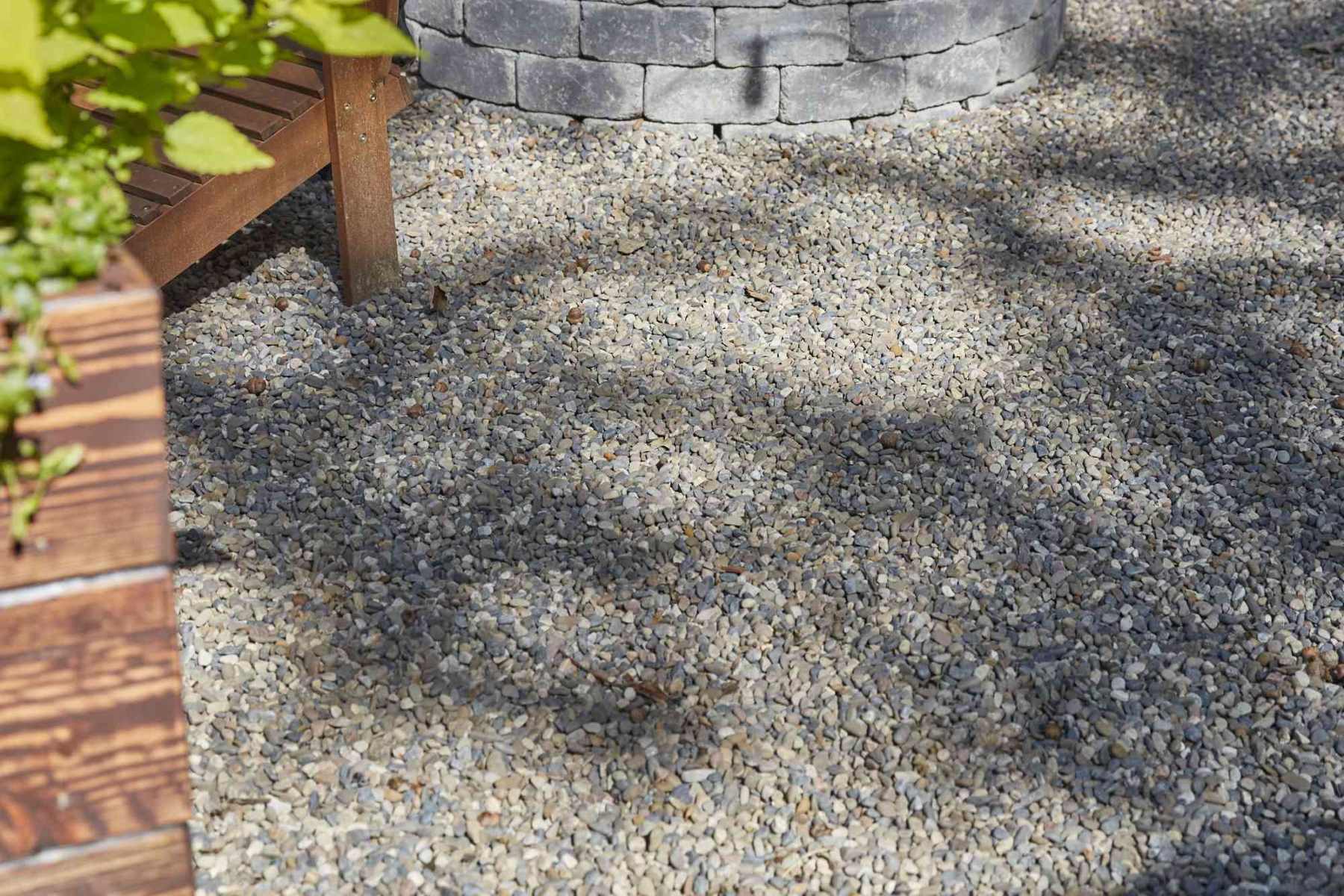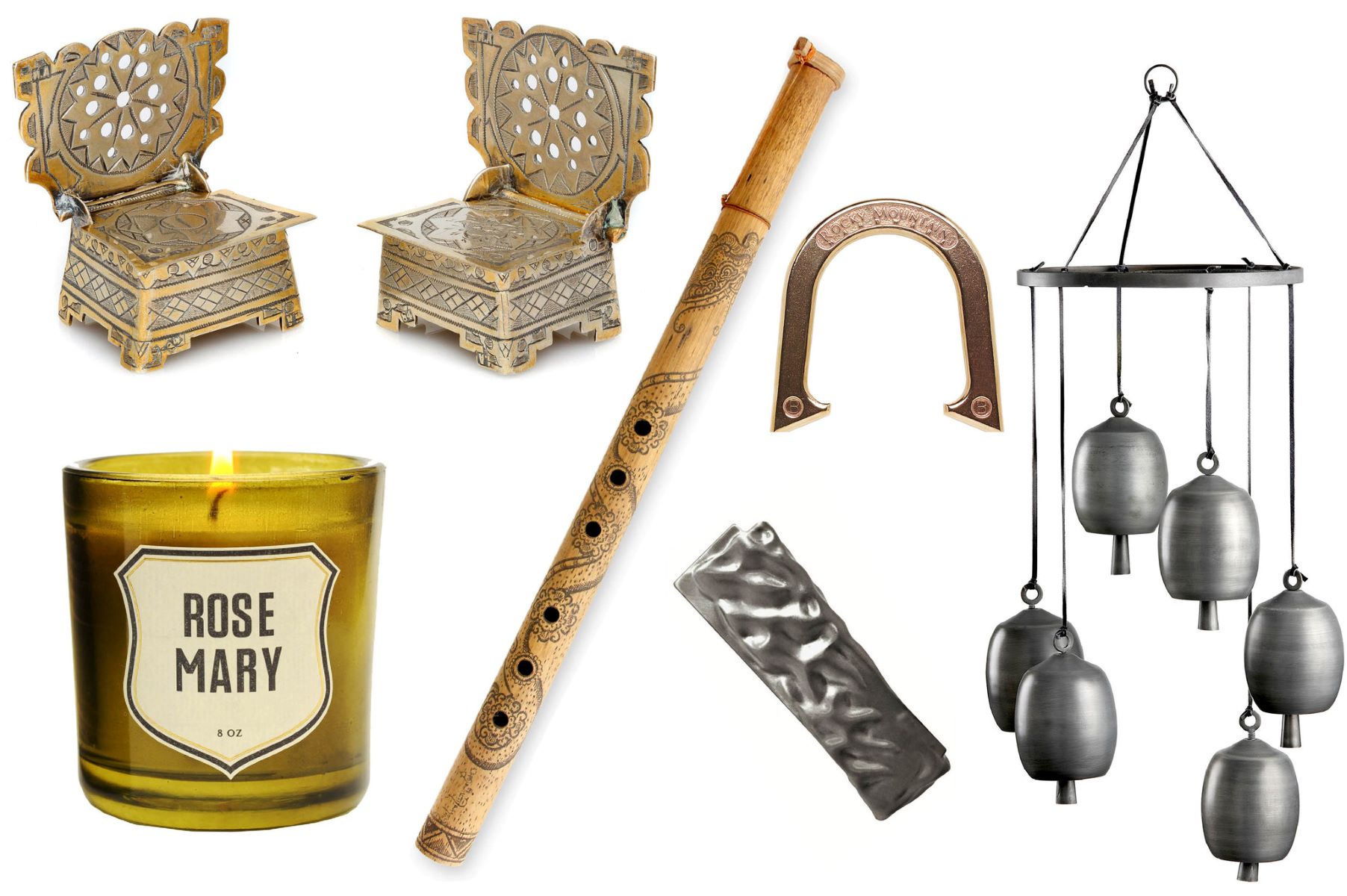Home>Lifestyle>5 Genius Hacks To Banish House Centipedes From Your Bed!


Lifestyle
5 Genius Hacks To Banish House Centipedes From Your Bed!
Published: February 14, 2024
Discover 5 genius hacks to banish house centipedes from your bed and improve your lifestyle. Say goodbye to unwanted creepy crawlies for good!
(Many of the links in this article redirect to a specific reviewed product. Your purchase of these products through affiliate links helps to generate commission for Regretless.com, at no extra cost. Learn more)
Table of Contents
Introduction
House centipedes, with their long, delicate legs and lightning-fast movements, can be a startling sight for anyone. While these creatures are beneficial predators that help control other household pests, their presence indoors can be unnerving for many people. If you've ever found a house centipede lurking in the corners of your home or, worse, in your bed, you understand the urgency of finding effective ways to keep them at bay.
In this comprehensive guide, we will explore five genius hacks to banish house centipedes from your living spaces. From understanding their behavior to implementing practical and natural solutions, you'll discover actionable strategies to reclaim your home from these unwelcome guests.
So, whether you're seeking proactive measures to prevent house centipedes from invading your personal space or you're dealing with a current infestation, these hacks will empower you to take control. Get ready to bid farewell to those creepy crawlies and restore peace and comfort to your home!
Understanding House Centipedes
House centipedes, scientifically known as Scutigera coleoptrata, are elongated arthropods characterized by their numerous legs and distinct, rapid movements. Despite their unsettling appearance, these creatures play a crucial role in controlling other household pests, such as spiders, ants, and bedbugs. Understanding their behavior and habitat preferences is essential for effectively managing and preventing infestations.
Physical Characteristics
House centipedes typically measure about 1 to 1.5 inches in length, although their long, slender legs make them appear larger. Their bodies are segmented, featuring 15 pairs of legs, which provide them with remarkable agility and speed. In addition to their legs, they possess long antennae and a pair of large, well-developed compound eyes, enabling them to detect movement and navigate their surroundings with precision.
Behavior and Habitat
These arthropods are nocturnal hunters, preferring to remain hidden during the day and emerging at night to forage for prey. House centipedes are commonly found in damp, dark environments, such as basements, bathrooms, and crawl spaces, where they can easily locate their preferred food sources. Their rapid movements and ability to scale walls and ceilings make them adept at capturing small insects and arachnids.
Reproduction and Lifespan
House centipedes reproduce through a process known as "spermatophore deposition," where the male transfers sperm to the female using specialized structures. After mating, the female can lay anywhere from 35 to 150 eggs, which she typically guards until they hatch. Once hatched, the young centipedes undergo a series of molts before reaching adulthood. With proper conditions and an adequate food supply, house centipedes can live for several years.
Nuisance or Beneficial?
While the sight of house centipedes may evoke unease in many individuals, it's important to recognize their beneficial role as natural pest controllers. By preying on other common household pests, they contribute to the overall balance of the indoor ecosystem. However, when their presence becomes overwhelming or causes distress, implementing measures to manage their populations and discourage infestations is a practical approach to maintaining a harmonious living environment.
By gaining insights into the habits and characteristics of house centipedes, you can develop targeted strategies to minimize their presence and create a more comfortable indoor setting for you and your family.
Genius Hack #1: Seal Entry Points
One of the most effective ways to deter house centipedes from infiltrating your living spaces is to fortify your home against their entry. These agile creatures can slip through tiny openings and cracks, gaining access to the interior of your residence. By meticulously sealing potential entry points, you can create a formidable barrier that prevents house centipedes from venturing indoors.
Begin by conducting a thorough inspection of your home's exterior and interior, paying close attention to areas where walls meet the foundation, gaps around windows and doors, and utility penetrations. Seal any visible cracks, crevices, or holes using a high-quality silicone-based caulk or weatherproof sealant. Focus on areas where plumbing, electrical wiring, and vents enter the house, as these are common entry points for various pests, including house centipedes.
In addition to sealing exterior entry points, it's essential to address potential indoor hiding spots and pathways for house centipedes. Check for gaps around baseboards, electrical outlets, and pipes, and apply sealant as needed to eliminate these access points. Installing door sweeps and repairing damaged window screens can further reinforce your home's defenses against these agile intruders.
Furthermore, consider the condition of your home's foundation and exterior walls. Small gaps and openings in the foundation can serve as gateways for house centipedes seeking refuge and food sources. Utilize mortar or concrete to fill in any visible cracks or gaps, thereby reducing the likelihood of these arthropods gaining entry.
By implementing these meticulous sealing measures, you can significantly reduce the opportunities for house centipedes to enter your home. This proactive approach not only deters these creatures but also enhances the overall integrity and energy efficiency of your living space. With a well-sealed home, you can enjoy greater peace of mind, knowing that you've taken decisive steps to fortify your residence against unwelcome intruders.
Genius Hack #2: Reduce Moisture
Excessive moisture in your home can create an inviting environment for house centipedes, as these creatures thrive in damp and humid conditions. By addressing and mitigating moisture-related issues, you can effectively diminish the appeal of your living space to these arthropods. Implementing targeted strategies to reduce moisture levels will not only discourage house centipedes but also contribute to a healthier and more comfortable indoor environment for you and your family.
Identifying Problem Areas
Begin by identifying areas in your home where moisture tends to accumulate. Common trouble spots include basements, crawl spaces, bathrooms, and areas near plumbing fixtures. Inspect these areas for signs of water leakage, condensation, or dampness. Addressing these issues promptly is crucial for preventing the proliferation of house centipedes and other moisture-loving pests.
Proper Ventilation
Improving ventilation throughout your home is essential for reducing humidity levels and promoting air circulation. In areas prone to moisture buildup, such as bathrooms and kitchens, ensure that exhaust fans are functioning optimally to expel humid air outside. Additionally, consider using dehumidifiers in particularly damp areas to maintain an optimal indoor humidity level, typically between 30% and 50%.
Repairing Leaks and Insulation
Leaky pipes, faucets, and fixtures can contribute to moisture accumulation, providing an attractive habitat for house centipedes. Regularly inspect plumbing systems for leaks and promptly address any issues to prevent water damage and mold growth. Furthermore, adequate insulation in walls, floors, and attics plays a crucial role in preventing condensation and maintaining consistent indoor humidity levels.
Managing Outdoor Drainage
Effective management of outdoor drainage is instrumental in preventing excess moisture from seeping into your home's foundation and basement. Ensure that gutters and downspouts are clear of debris and direct water away from the foundation. Grade the soil around your home to promote proper drainage and prevent water from pooling near the structure, thereby reducing the risk of moisture infiltration.
Maintaining Dry Conditions
Consistently maintaining dry conditions in your home is key to discouraging house centipedes and other moisture-dependent pests. Promptly address spills and leaks, and regularly clean and dry areas prone to moisture, such as shower stalls, sinks, and laundry rooms. By staying vigilant and proactive in managing moisture, you can create an inhospitable environment for house centipedes, ultimately minimizing their presence in your home.
Implementing these measures to reduce moisture not only deters house centipedes but also contributes to the overall well-being of your home. By creating a dry and inhospitable environment, you can effectively diminish the attractiveness of your living space to these agile arthropods, promoting a more comfortable and pest-free home environment.
Genius Hack #3: Natural Repellents
Incorporating natural repellents into your pest management strategy offers an eco-friendly and aromatic approach to deterring house centipedes from taking up residence in your home. By harnessing the power of certain scents and substances that house centipedes find disagreeable, you can create an environment that is less conducive to their presence. These natural repellents not only serve as effective deterrents but also contribute to a pleasant and fresh atmosphere within your living spaces.
Essential Oils
Harnessing the potent properties of essential oils can be a compelling way to repel house centipedes. Certain essential oils, such as peppermint, tea tree, and eucalyptus oil, are known for their strong scents, which are highly disliked by these arthropods. Dilute a few drops of your chosen essential oil with water and spray the solution along baseboards, entry points, and other areas where house centipedes may gain access. Not only does this create an olfactory barrier, but it also infuses your home with refreshing and invigorating fragrances.
Citrus Peels
Citrus peels, such as those from oranges, lemons, and grapefruits, contain natural compounds that repel house centipedes. Simply place citrus peels in areas where these creatures are likely to hide, such as closets, cabinets, and basements. The strong scent emitted by the peels acts as a natural deterrent, discouraging house centipedes from lingering in these spaces. Replace the peels periodically to maintain their efficacy and keep your home smelling citrusy fresh.
Diatomaceous Earth
Diatomaceous earth, a fine powder derived from fossilized algae, is an effective natural repellent and desiccant. When sprinkled in areas frequented by house centipedes, such as along baseboards and in dark corners, diatomaceous earth acts as a physical barrier and dehydrates the arthropods upon contact. This natural substance is non-toxic to humans and pets, making it a safe and environmentally friendly option for deterring house centipedes and other pests.
Cedarwood
The aromatic properties of cedarwood make it a popular choice for natural pest control. Cedar blocks, chips, or essential oil can be strategically placed in closets, drawers, and other potential hiding spots for house centipedes. The distinct scent of cedar acts as a repellent, discouraging these creatures from inhabiting these areas. Additionally, cedar offers the added benefit of repelling other common household pests, making it a versatile and natural solution for maintaining a pest-free home.
By incorporating these natural repellents into your pest management approach, you can effectively deter house centipedes while infusing your home with refreshing scents and eco-friendly solutions. These natural alternatives not only serve as effective deterrents but also contribute to a pleasant and fresh atmosphere within your living spaces.
Genius Hack #4: Keep Your Home Clean
Maintaining a clean and clutter-free home is a fundamental strategy for preventing and managing house centipede infestations. By prioritizing cleanliness and implementing regular cleaning routines, you can effectively reduce the factors that attract and sustain these agile arthropods within your living spaces.
Decluttering and Organization
Begin by decluttering and organizing your living areas, including closets, basements, and storage spaces. Clutter provides ample hiding spots for house centipedes and other pests, making it essential to minimize potential harborage areas. Regularly assess and declutter areas where items tend to accumulate, ensuring that belongings are stored in an organized manner, away from walls and floors.
Thorough Cleaning Practices
Adopting thorough cleaning practices is crucial for removing food sources and deterring house centipedes. Vacuuming and sweeping floors, especially in hard-to-reach areas and along baseboards, helps eliminate crumbs, debris, and small insects that serve as prey for centipedes. Pay particular attention to areas with high humidity, such as bathrooms and kitchens, as these spaces are more likely to harbor both pests and their food sources.
Regular Dusting and Maintenance
Dust and debris accumulation can create favorable conditions for house centipedes, as well as other pests. Regular dusting of surfaces, furniture, and fixtures minimizes potential hiding places and removes particles that can attract prey insects. Additionally, addressing and repairing any leaks, cracks, or damaged seals contributes to a less hospitable environment for house centipedes, reducing their likelihood of establishing a presence in your home.
Effective Waste Management
Proper waste management is essential for minimizing the availability of food sources that attract house centipedes. Ensure that garbage bins have secure lids and are emptied regularly to prevent the accumulation of organic matter that could attract pests. Additionally, promptly clean up spills and dispose of food scraps to discourage the presence of insects that serve as prey for house centipedes.
Outdoor Maintenance
Maintaining the exterior of your home is just as important as indoor cleanliness. Keep outdoor areas clear of debris, such as leaf piles and woodpiles, which can harbor pests and provide entry points for house centipedes. Regularly trim vegetation and bushes near the house to reduce potential pathways for pests to access the interior.
By incorporating these comprehensive cleaning practices into your routine, you can create an environment that is less hospitable to house centipedes and other pests. Consistent cleanliness not only deters these creatures but also contributes to a healthier and more comfortable living space for you and your family.
Genius Hack #5: Seek Professional Help
When faced with a persistent or overwhelming house centipede infestation, seeking professional assistance from pest control experts can provide an effective and efficient solution. Professional pest control services offer specialized knowledge, experience, and resources to address house centipede infestations comprehensively, providing peace of mind and long-term relief from these agile arthropods.
Professional pest control companies employ trained technicians who are well-versed in the behavior, habits, and biology of house centipedes. Their expertise enables them to conduct thorough inspections of your home, identifying key areas of activity and potential entry points for these creatures. By leveraging their understanding of pest behavior, professionals can develop targeted strategies to eradicate existing infestations and prevent future incursions.
One of the primary advantages of enlisting professional pest control services is the access to specialized treatments and products that are not readily available to consumers. Pest control experts utilize a range of proven and safe methods to eliminate house centipedes, such as targeted insecticide applications, dusts, baits, and exclusion techniques. These treatments are tailored to the specific needs of your home and are designed to disrupt the centipedes' lifecycle and habitat, effectively reducing their populations.
Furthermore, professional pest control services offer ongoing monitoring and maintenance to ensure long-term success in managing house centipede infestations. By implementing preventive measures and providing regular inspections, experts can help fortify your home against future infestations, offering valuable guidance on sealing entry points, reducing attractants, and maintaining a pest-resistant environment.
In addition to their technical expertise, professional pest control services prioritize safety and environmental responsibility. They adhere to industry regulations and best practices, utilizing treatments that are effective yet safe for your family and pets. By entrusting your pest control needs to professionals, you can have confidence in the responsible and ethical management of house centipede infestations, minimizing risks and maximizing results.
Ultimately, seeking professional help for house centipede infestations offers a proactive and comprehensive approach to pest management. By leveraging the knowledge, resources, and expertise of pest control experts, you can effectively address infestations and safeguard your home against future intrusions, reclaiming a pest-free and comfortable living environment.
Read more: 5 Signs That A Jinn Is Haunting Your House
Conclusion
In conclusion, banishing house centipedes from your living spaces requires a multifaceted approach that encompasses understanding their behavior, implementing proactive strategies, and maintaining a clean and inhospitable environment. By combining the genius hacks detailed in this guide, you can effectively minimize the presence of these agile arthropods and reclaim your home from their unwelcome intrusion.
Understanding the physical characteristics, behavior, and habitat preferences of house centipedes provides valuable insights into their vulnerabilities and habits. Armed with this knowledge, you can develop targeted strategies to deter and manage their populations, creating a more comfortable and harmonious living environment for you and your family.
From sealing entry points and reducing moisture to incorporating natural repellents and maintaining a clean home, each genius hack serves as a proactive measure to discourage house centipedes from establishing a presence in your living spaces. These practical and eco-friendly solutions not only address current infestations but also contribute to long-term prevention, minimizing the likelihood of future incursions.
Furthermore, seeking professional assistance from pest control experts offers a comprehensive and effective solution for persistent or overwhelming house centipede infestations. By leveraging their specialized knowledge, experience, and resources, you can benefit from targeted treatments, ongoing monitoring, and valuable guidance to fortify your home against future infestations.
By integrating these strategies and approaches, you can create an environment that is less conducive to house centipedes, ultimately reclaiming your home and restoring peace and comfort to your living spaces. Embracing a proactive and holistic approach to pest management empowers you to take control and enjoy a pest-free home environment.
In your journey to banish house centipedes, remember that persistence and consistency are key. By implementing these genius hacks and maintaining vigilance, you can effectively minimize the presence of these agile arthropods, creating a living environment that is welcoming, comfortable, and free from unwelcome intruders.









